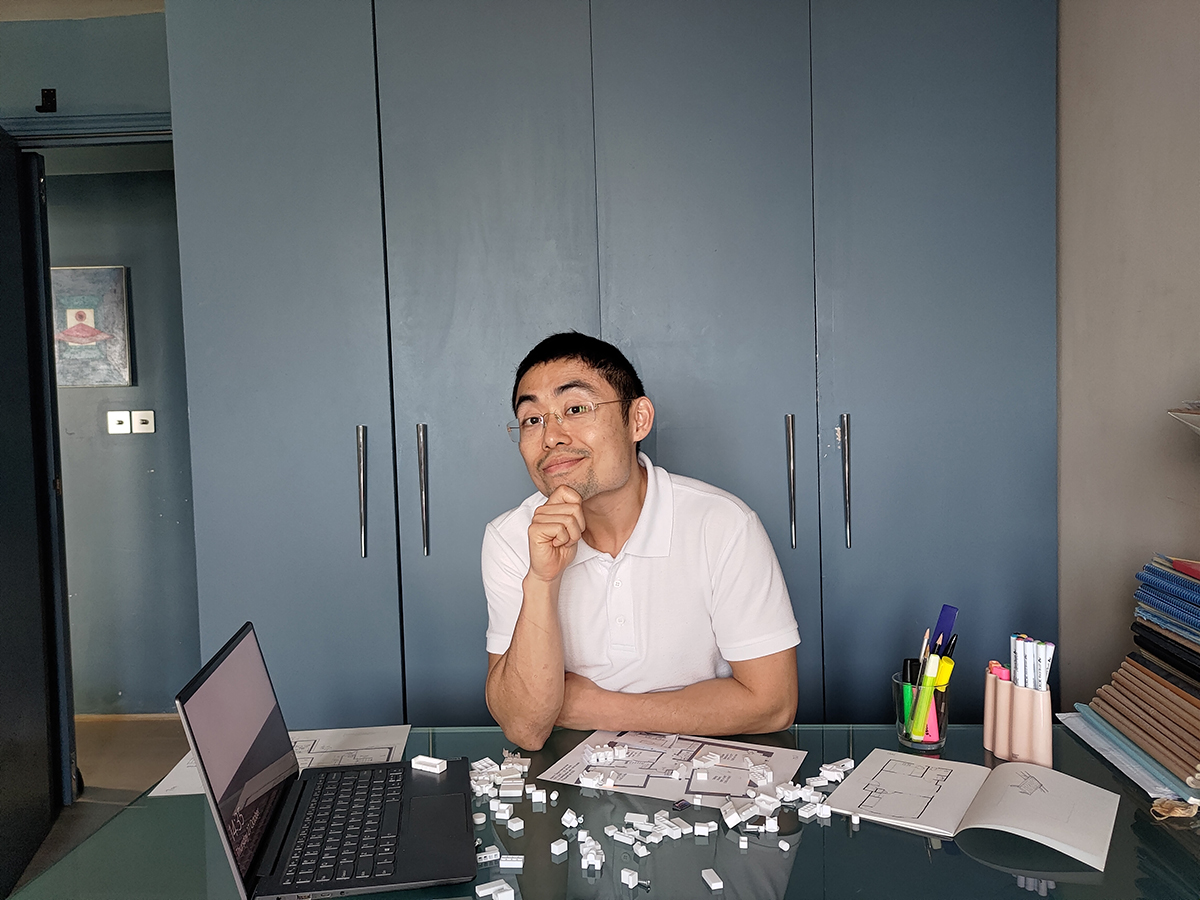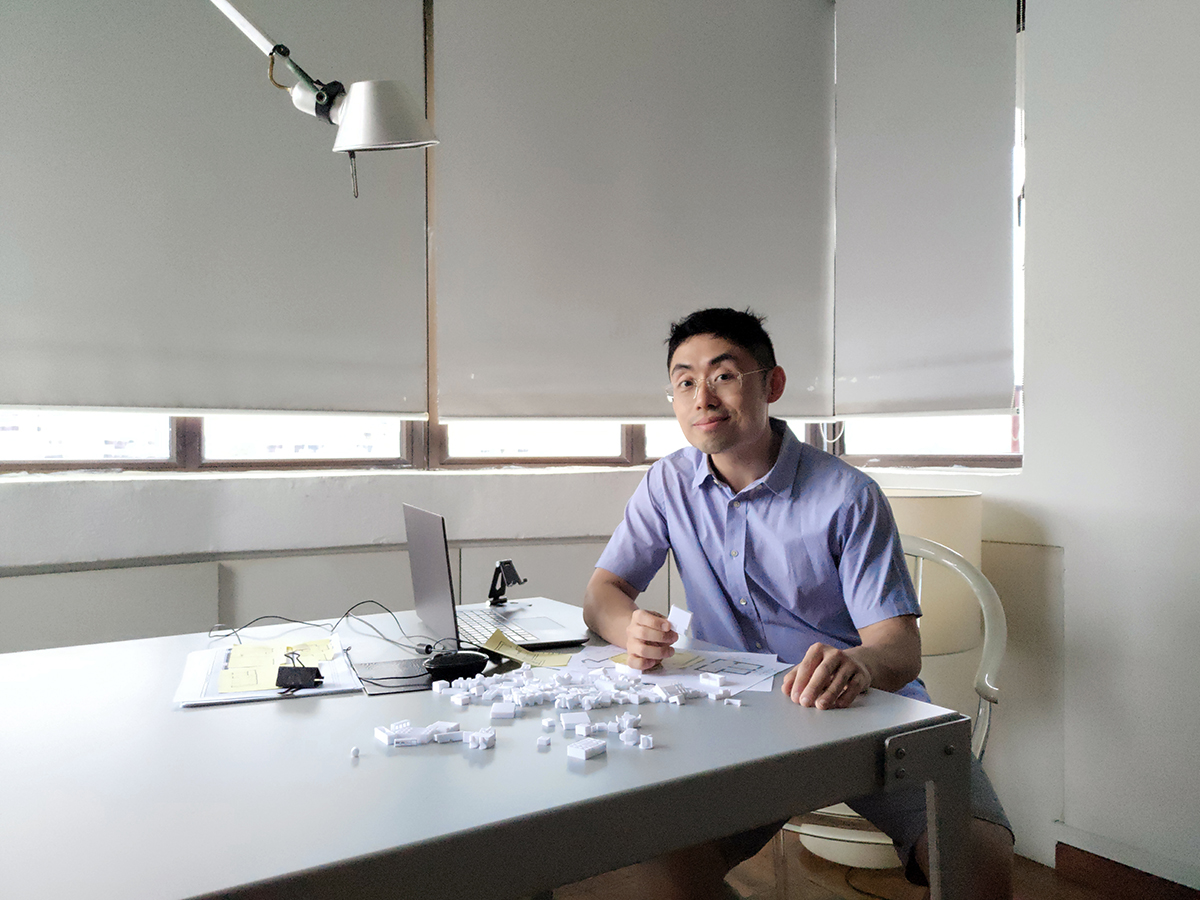Feng Shui expert, Dear Modern Founder and TikTok star Cliff Tan talks us through his fascinating career, his down-to-earth approach to Feng Shui and why he wants to make this mystical art accessible to everyone.
You used to work as an architect—how did you break into Feng Shui?
Working as an architect, I’ve always applied the principles of Feng Shui in the background. I would rarely explicitly mention those ideas as I did not want to alarm my clients.
My family is very into Feng Shui and my grandfather was actually a master, so I gained basic knowledge through them over the years, but it took me years to build my knowledge, especially on form Feng Shui, which is very intuitive.
What’s form Feng Shui? How is it different from other Feng Shui?

Essentially, there’s Flying Stars and then there’s form Feng Shui. They are not separate, but complementary. Form Feng Shui is about the landforms, flow of energy and structures, it is said to be the most original form of Feng Shui and usually takes precedence.
It was after the compass was invented that Feng Shui was developed to incorporate precise magnetic directions with its associated elemental qualities. Form Feng Shui is simpler but more difficult to master and is the one that I usually talk about.
You have a unique approach to Feng Shui, trying to make it as understandable and accessible as possible, particularly through your TikTok videos. Why do you think it’s important to break it down that way?
Feng Shui is really about how you feel. Once you feel nice in your space, you will perform well. I think it’s important to demystify Feng Shui and explain how it works because if you don’t know why something does or doesn’t work, you won’t know how to change your approach when something isn’t working for you.
When you know the foundation, you will understand how you can make decisions and adjustments based on your own preferences. You can’t blindly follow Feng Shui “rules” without adapting them to what works for you.
How did you get started posting Feng Shui videos on TikTok?
During the pandemic, I was stuck in a hotel in Singapore and watched a lot of Tik Tok. I had nothing to do and decided to just make a video about bedroom Feng Shui for fun. I thought it was such a basic thing, everybody knows where you should put your bed, but when I posted the video, I realised people don’t know anything about Feng Shui.
I started making more and more videos, helping people with their room layouts, and the videos went viral. Eventually, people started asking me for direct advice, which I didn’t have the capacity for. I tried to answer for free, but there were hundreds and hundreds of questions, so I decided to start a consultation page on my website.
Eventually, I stopped my traditional job and I’m now doing these consultations full-time!
Some people are confused by the idea of “energy” in a home. Can you explain what this means in more practical terms?
Energy is essentially just how something makes you feel. For example, the feelings you get standing in the middle of a busy highway versus in a calm garden are very different.
When you go to a cafe, you’d rarely just sit at the first table you see, you’d probably take a moment to calculate the best spot that’s surrounded by the nicest energy. When we buy a house, we would look at external factors such as the entrance lobby, the neighbours and the views.
All these things are energy and we all want the nicest energy around us. The word throws people off because it sounds so full of mysticism, but it’s really just about how we feel in a given environment.
You don’t use numerology in your own approach to Feng Shui, but do you feel like there is a similar logic behind it too?

Feng Shui is really about how we feel in our environment, so your personal preferences are just as important as the environment. Numerology is an attempt to predict who you are and your preferences based on the day you are born.
Depending on when you are born, your childhood happens in a different environment. If someone is born in January in the northern hemisphere, their childhood happens in spring, whereas if someone is born in September, their childhood happens in the winter.
So the things that they do, their likes and dislikes, are likely going to be different. That’s the logic behind it. I don’t personally use numerology because it can be subjective and I prefer getting more personal and asking people lots of questions about themselves in my consultations.
How do your Feng Shui consultations usually go? What can people expect?
Some people ask, “What if I come to you and there’s nothing to fix?” If there was nothing to fix, you wouldn’t have come to me. There’s always something to fix. It may not be the furniture arrangement that needs to change; it could be the way a room is decorated or even memories associated with a space.
I had a client who could not have any restful sleep even though her room was perfectly arranged. I soon found out that she had recently gotten divorced and had spent many bad years in the same room with her ex-husband. The solution was actually for her to sleep in another room.
That’s why it’s so important to understand the circumstances of the client. There are no barriers in that sense. I really do ask the most personal of questions, but always as a friend and it’s always fun!
You sometimes provide people with Feng Shui advice digitally, based on the pictures and videos people send you. Do you feel like being in the actual, physical space changes your understanding of it?
Totally. I mean, I’m used to imagining spaces through videos and I get it right 90% of the time, understanding what it’s supposed to feel like. But visiting is always better because you get to appreciate other factors that you can’t get from videos and photos, like the noise level, the temperature of the space, the views, etc.
I can also guide my client to feel the energy that I feel. I can tell them to sit down for a moment and feel the energy, then move to another spot and feel the difference. So while visiting only helps me to some extent, it really helps me guide my clients to understand their own space better.
What are some small design details that can greatly impact Feng Shui in a home?
Usually, the things that you engage with constantly, like light switches and door handles. Small details are actually very important.
I would rather, in fact, encourage spending less on the big furniture pieces, especially storage items, which are meant to disappear into the background, and instead focus more on the statement pieces such as lamps and accent chairs, as these are the ones that have the most visual impact in the room.
Psst! Cliff Tan has published a fun, accesible book about form Feng Shui. Get it here!
This post was adapted from an article originally published in the June 2023 issue of SquareRooms.



